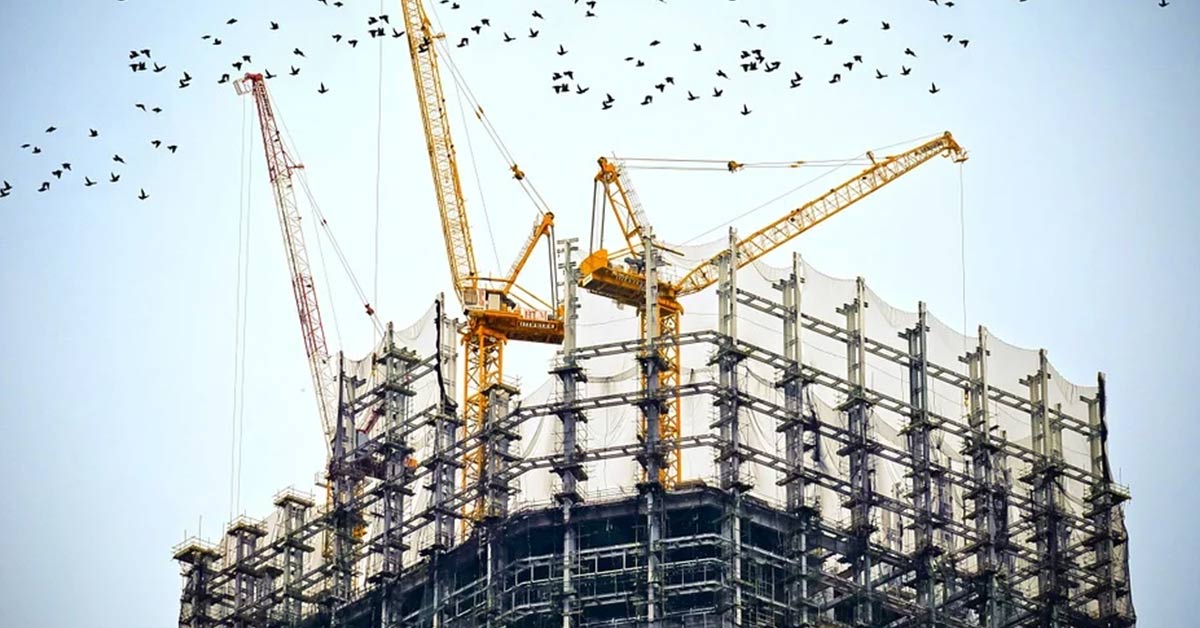The pandemic has turned digital speculations into reality
By Edit Team | October 17, 2020 1:42 pm SHARE

Intense mechanization and digitization were catchphrases for many players, the time has come to implement it in real. Going forward, the industry will have to optimize, adapt and embrace change across the shop floor and the entire supply chain.
The year 2020 has been unprecedented in terms of being affected by so many factors. The world faced a huge challenge at the start of the year with coronavirus pandemic and it has impacted every industry. But as the old saying goes, ‘Every challenge brings an opportunity’ and this pandemic could turn out to be a blessing in disguise for industries in adopting the new normal.
So, what constitutes this new normal? Even before the pandemic, there was a huge emphasis on going digital and embracing technology. Indian Prime Minister Narendra Modi also urged the industry leaders to embrace ‘Atmanirbhar Bharat Abhiyaan’ (self-reliant) mission and if implemented properly, it can do wonders to the Indian economy and bring tremendous success across sectors.
Key words of the new normal post-2020: adaptivity and optimization
Kiran Shetty, CEO, Conserve Buildcon LLP, articulately explains the new normal for the construction and infrastructure sector. He emphasizes adaptability and optimizing the use of technology for productive results.
Kiran says, “Post-Covid, the construction and infrastructure sector is gradually coming to terms with the emerging realities like new customer expectation, dwindling margin, oil price volatility and direct or indirect impact of various geopolitical developments. Other challenges like reverse migration or supply chain disruptions have made the scenario further challenging. As a result, although the economy is in revival mode, the profitability is under stress.”
He further adds, “So, the priority of almost all the engineering, procurement and construction (EPC) companies at the moment is to enhance operational efficiency and achieve better cost-effectiveness. Therefore, digital technology adoption will be at the core of the post-Covid narrative for the construction and infrastructure sector. Aspects like design and engineering, procurement, supply chain integration, asset utilisation monitoring will become more digitally-inclined to ensure timely project delivery and healthy profitability.”
Government funded projects:
From state inaction to a state in action Indian government in recent times have walked the extra mile to spend on infrastructure activities. But due to Covid-19 pandemic, the infra sector has witnessed a little bit of slowdown and as a result of this, the upgradation of infrastructure activities have faced a setback.
Sharique Khan, Project Manager, Turner India, believes that the government should invest heavily in the infra sector and lead from the front. Sharique says, “To have sustainable development in the country, the government should make significant investments in the infrastructure sector primarily the highways, urban transport and renewable energy. Construction industry seeks immediate release of pending payments; the government and lenders can help provide the much needed liquidity to the cash-starved entities failing which the performance of the companies can come under pressure in the near future.
He further says, “The most anticipated aid from the government for the construction industry is that of increase in cash-flow and liquid capital along with other financial support initiatives and subsidies. This is very closely followed by the demand for ‘trains and other transportation facilities’ to enable ease of movement for the workforce, and reduction in GST and other applicable taxes and duties.
Embracing digital workflows and supply chains
Technology has become an integral part of our daily lives. Construction and infrastructure sector are also no exception to this. There has been a huge boom in technological advancements and it has ranged from Artificial intelligence (AI) to Robotics to various applications, which are leading the way forward.
Ratan Lal Kashyap, Sr. Vice President- Procurement, G R Infraprojects Ltd, gives his expert opinion on this topic and magnificently sums up the ground reality. He says, “As a techno-commercial person, digital transformation has to happen in the industry over a period of time and people have to rely on that. And it will include process digitization, communication platforms, which have become quite necessary. For B2B integration to happen, we are in the process of integrating systems which are hassle-free like auto bill generation, auto GRN and it has to happen. So, there is less human intervention and it is more business-specific. We are also trying to adopt mechanized process and automation while working on roads, bridges and railways. And invariably it will help with efficiency and business.”
Manoj Nainani, Executive Director – Infrastructure (Water, Ports, Urban & Energy), Specialised Engineering, Egis India, concurs with Ratan Lal Kashyap on adapting to digital tools for business growth. Manoj says, “Since social distancing and remote working through digitisation has become a norm during the pandemic, it will only propel companies to invest more resources in developing these tools that enable clients the ease of seeing live updates on projects sitting at their desks and tools. Tools that help in optimising resources by developing digital models before the actual construction starts will also witness an increase in use. Tools like these were already operational but post Covid-19 era, we will see more and more companies using them.”
So, the future might not be a bed of roses but at the same time its not all doom and gloom. It is a time to think right and embrace the future but not without being prepared for it. Though the general consensus among industry leaders is its time to think on your feet without looking far too ahead, the future will depend on adjusting to technological advancements and minimizing the scope of human intervention and collaboration. As the industry moves towards the new year, it remains essential to interpret the market dynamics and address it correctly and make the most of the world beyond 2020.
Cookie Consent
We use cookies to personalize your experience. By continuing to visit this website you agree to our Terms & Conditions, Privacy Policy and Cookie Policy.




































-20240213125207.png)

























